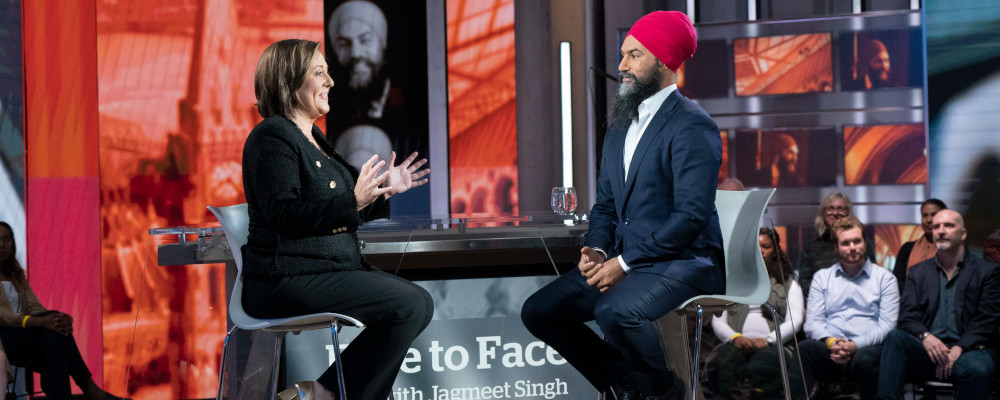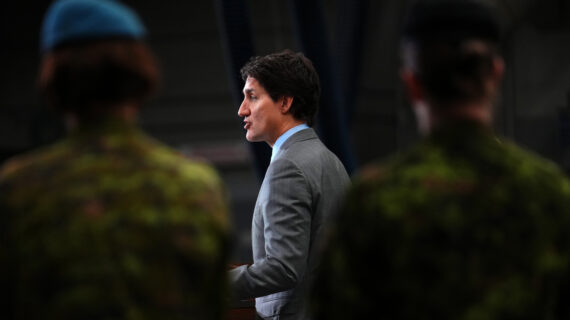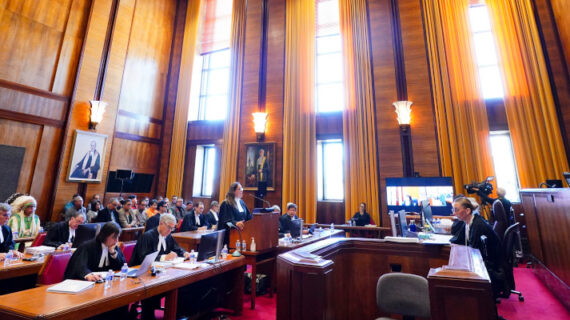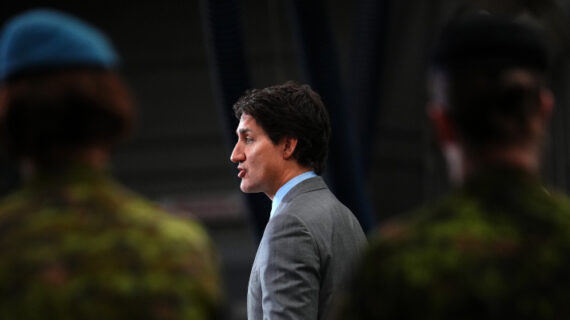Who are the “public intellectuals” of Canada? In the introduction to his 2013 edited volume The Public Intellectual in Canada, Nelson Wiseman argued that the initial difficulty with answering the question is in finding the people who identify as one. But today, nearly ten years later, it may be better to say that it is a challenge to find someone who doesn’t, at least implicitly, claim the role. Traditional media gatekeeping has lost its legitimacy, and now a direct, fragmented public space has produced quite literally thousands of voices who all compete for today’s most precious commodity: attention.
The results have not been good for Canada.
In contrast to popular perception, we are not actually that polarized but, instead, have framed our politics around a staid and unproductive status quo. Mediocrity is a useful label—while very little is contested, we have produced few innovations to address our growing policy challenges. We often lack a multifaceted, contentious, and productive discourse around our core national values, history, and aspirations. Our politics consists of too many minor adjustments that are justified by appeals to increasingly unchallenged, but often vague or false, platitudes.1The “median” or “moderate” voter, liberal cosmopolitanism, and “free” health care, among others.
The same can be said about the ongoing use of the related, and equally nebulous, role of the “political expert”. By expert, I mean those persons who by some sort of combination of experience, training, and practice can be relied upon as an effective—but not flawless—source of interpretation and judgment of novel information or events.
Formal expertise is not popular. Populist critiques, unexpected electoral results, and COVID-era technocratic overreach have diminished its claim to relevance. During political conversation, resorting to “experts say” is bound to elicit groans and eye-rolling; it often signifies poor argumentation and uncritical, directionally motivated reasoning. There is no shortage of experts who can back up almost any opinion. Perhaps worse is that to many, so-called “experts”—whether political scientists or political operatives—have nothing interesting to say.
But political expertise, as with public intellectualism, is a necessary part of any vibrant polity. Not only should it encourage an informed and engaged public but, ideally, ought to perpetuate a more critical and deliberative state of affairs. A community without relatively independent intellectual arbiters is opaque, inaccessible, and risks reducing politics to a matter of raw power and self-interest. Established interests will always prefer the status quo, no matter how atrophied it is. This is good for them—and bad for the rest of us who desire a more productive politics.
Yet, experts—short of being objective—also shape political discourse. That is, they not only communicate to the less informed a partial view of “what is going on” but are impactful precisely because they also interpret the events they comment on.2Moynihan aside, several claims to “objectivity” are just an unacknowledged support for the status quo, its assumptions, and its power relations. Alternatively, however, experts who harness information to effectively challenge prevailing orthodoxies, produce creative and attainable solutions, and mobilize support, are indispensable.
To improve our politics, then, what matters is that we do not delegitimize expertise as much as we should better realize and clarify the value of these kinds of intellectual contributions. When it comes to politics, intellectuals must not be treated as unquestioned authorities, and they are not the objective arbiters of “fact” and “misinformation.” Rather, they ought to help produce and sustain a broader political and intellectual climate that is contentious, critical, and productive.3Power is necessarily adversarial, as influence is always enjoyed by some at the expense of others. Ideally, intellectuals can still be partisan, and they ought to communicate their ideas in a way that is attentive to the realities of politics.
But this type of intellectual does not really exist in large numbers in contemporary Canada, and the result has been a certain hollowness to our politics. Instead of well-developed and grounded discourse, we have social media hot takes and shallow political talking points.
Compare this to the United States, where there is a cascading array of publications, think tanks, foundations, and other media output of reasonably high-brow and impactful political discourse representing different partisan or ideological commitments. While not at all read by the average person, they facilitate discourse that is both contentious and public.
In contrast, what often suffices as mainstream political intellectualism in Canada is an ongoing turf war between academics, who supply their “expertise” to the media, and political practitioners, who in turn attack them for lacking nuanced, real-world understandings of politics.4This, of course, isn’t a watertight distinction, as many individuals occupy both spaces.
Neither in their current form produce an effective, mainstream intellectual space. Political operative commentary—such as the panels that are now a cornerstone of television news programs —has its place and is perfectly fine for the news, but it too often lacks the detached, measured, and critical evaluations necessary to improve Canadian politics.5Indeed, its utility and its entertainment value are one of the same; at its best, it can provide a sort of “insider perspective” as to why politicians act the way they do.
The role of academics,6Specifically but not exclusively political scientists. on the other hand, is more nuanced. Academics have served effective intellectual and political roles: Charles Taylor, David McGrane, Ian Brodie, Stephen Clarkson, and the “Calgary school” are a few examples. The problem, instead, has to do with the sort of public engagement that has gotten more pervasive over time.
While the academy is often accused of being the voice of left-wing revolutionaries, it can also be a powerful force for legitimizing and normalizing an established regime. While Canadian political science has had its share of critics, much of the discipline in the 20th century was preoccupied with the practical tasks of Canadian nation-building, specifically when it came to articulating, understanding, and defending Canadian political institutions against centrifugal forces like Quebec nationalism. More than anything, scholars have moved away from their previously predominant role in shaping public opinion on the big questions of Canadian political life.
Instead, the more recent trend is that the rapid growth and professionalization of academia has turned it, for better and worse, into a more insular occupation that follows its own parochial norms and career incentives. Academic publishing is laborious, and the need to fill CVs with enough peer-reviewed publications tends to narrow down one’s focus at the expense of more big-picture thinking. It has meant that, for the most part, academics can only really contribute to the public conversation through their research. But, while this can inform certain elements of public conversation, there are increasingly fewer resources and incentives to engage in more systematic analysis. Their ultimate loyalties are to their discipline, university, and scientific profession.

Meanwhile, despite its reputation as an excuse for punditry, political science has undergone something of a methodological revolution over the last couple of decades, and its ability to contribute data, falsifiability, and empirical findings to Canadian political discourse is improved and increasingly valuable.
But it does not ultimately alleviate this problem. Information is not in and of itself freeing, and the nearly limitless amount of content only creates decision fatigue and a reversion back to prior predispositions, identities, and interests. Detached scientific analysis is also wholly inadequate for the art of politics itself and cannot on its own build support for and mobilize effective change.
Instead, moving forward, the emphasis needs to be made on carving out a space for slow, detached, and reflective political thought and dialogue. I am talking here about a deliberate re-engagement with the role of the national intelligentsia. In Europe, this has continued to operate as an occupation in and of itself that, in rejecting the claim of scientific objectivity, engages in intellectual activity for the purposes of developing and persuading others of stated political goals.
Given the current size of Canada, this effort will continue to be limited. The reality is that given sparse financial resources, very few people are able to engage in this kind of activity full-time. This means that for the time being, most of these organizations will have to be layered onto pre-existing institutions within academia, long-form journalism, and the parties themselves. Still, Canada is on the precipice of considerable growth. It is time to lay the groundwork and show that by overcoming the pervasive mediocrity of our contemporary politics, this country can better realize the opportunities of the coming decades.




